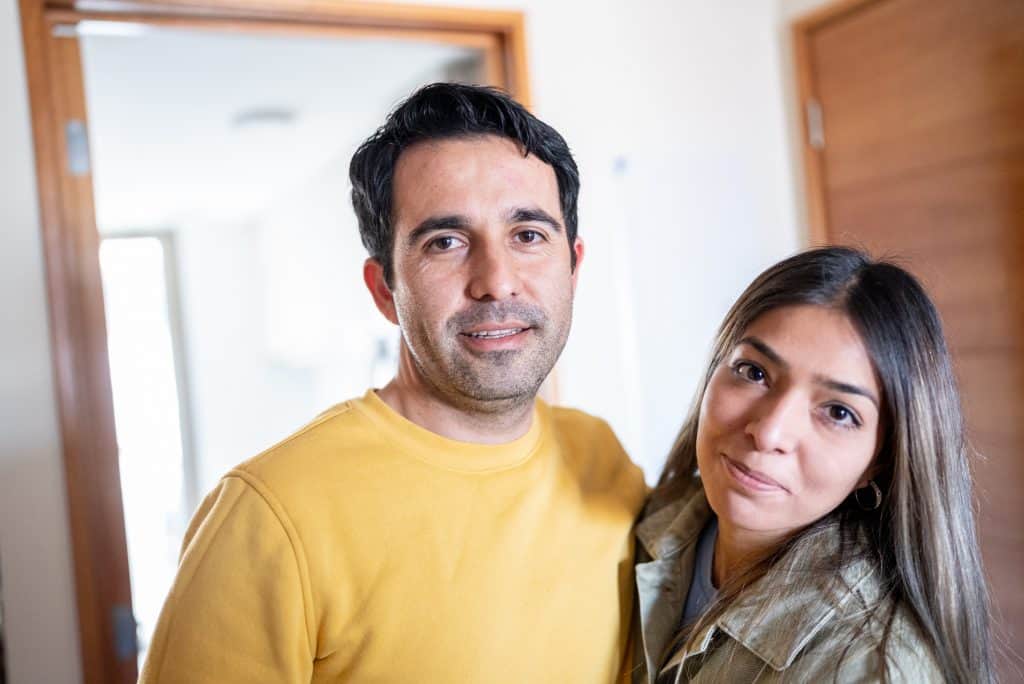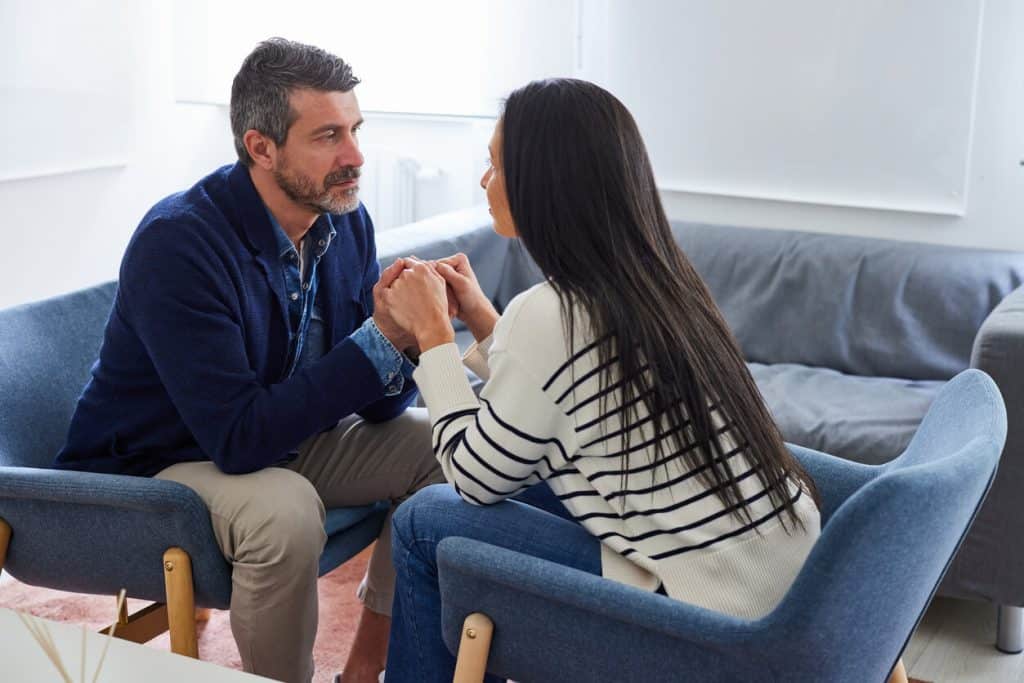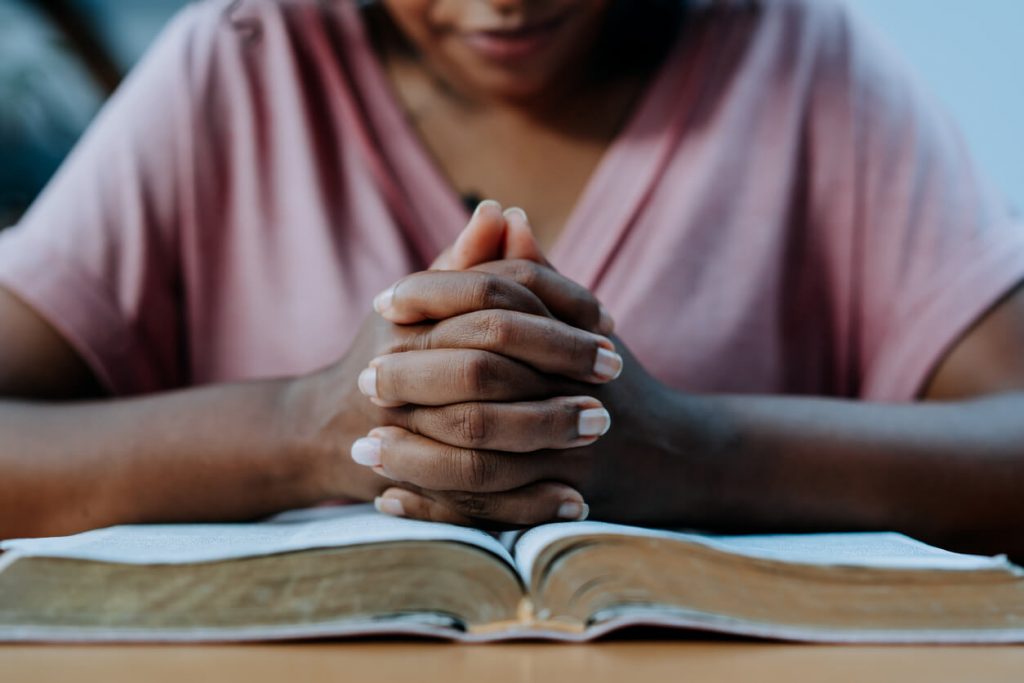I’ve suffered in silence and I’ve asked for help. But as much as I hate asking for help, I fully admit that both my marriage and I suffered far more greatly when we kept our problems to ourselves. It amazes me how much our own pride can keep us imprisoned.
In 2004, I had a brand-new baby… and a husband who was addicted to pornography. After one particular morning of catching him in the study after feeding our daughter a bottle, we both freaked out. We were a mess emotionally and spiritually. We plummeted into despair.
That morning, my mom was planning to come over and hang out with the baby.
As Craig crumbled in the bedroom, the doorbell rang. I picked up my daughter and took her to the door. When I opened it, I gave her to my mom, said, “Craig’s addicted to pornography,” and went back to the bedroom.
That was the very first time I had ever told a soul about Craig’s porn addiction.
I had known about it for almost three (yes, 3!) years.
What kept us in hiding all that time?
First and foremost, it was the shame surrounding porn addiction. I knew no one who struggled with this. I don’t remember if I ever searched the web for online help, but I am positive there was not as much then as there is now (praise the Lord that as a society and as a Church we are talking about it more often).
Second, I didn’t know that marriage was going to be this hard. Are problems normal? Are we supposed to need to ask for help? If we’re both Christians, aren’t we just supposed to be able to listen to God and figure it out?
Third, I didn’t know how to ask. There were people in our lives at that time who were trustworthy and who were great role models, but I didn’t quite know how to get their help. Do I ask them for dinner? Wave a white flag at them at church? Show up at their doorstep in tears and confess our marital issues?
Throughout the years, Craig and I got over ourselves and our fears. We finally learned that we just had to be brave and let people in. We started slowly with only a few people. Craig came clean about his addiction to his parents. I sought out advice from the pastor’s wife at our church. As we recognized the value in asking for help and as our marriage began to grow, we kept widening our circle of trustworthy, loving people.
We now are huge proponents of living out our marriage in community. One of the most life-giving things we have ever done in our marriage was lead a group of couples who were struggling with porn addiction (here’s a resource we developed for small groups struggling with addiction).
We love helping others along in their journeys and we also need people who are wiser and farther along in their relationship to help us! But don’t just believe our experience. Galatians 6:2 says, “Carry each other’s burdens, and in this way you will fulfill the law of Christ.”
Related: Three Tools Every Marriage Needs to Fight Porn Addiction
Guess what? Things in your marriage are going to happen that are burdensome. They are simply too heavy for you to carry on your shoulders alone. You aren’t born with all the relational tools you’ll ever need, so the wisdom from other couples around you is invaluable. Will they always have it together? Will they always have the right answer? Of course not. But part of community is simply empathizing and encouraging each other that marriage is worth fighting for.
Here are five tips to get started in finding community for your marriage:
1. Recognize that we all need help and we all can grow.
The need for community isn’t age-restrictive or only for when you have issues. In fact, how amazing is it to be able to learn from people and then not make their same mistakes? Craig and I spent years in a stalemate about having more children. If we had been involved with other couples on a real level, we could have had gathered up some tools to help us deal with this kind of conflict instead of vacillating between ignoring the issue and yelling our heads off about it.
It’s not a sign of weakness to ask for help. It’s a sign of strength. And how amazing is it to realize that you have something to give others? Your trials and tribulations—your victories and successes—are not just for you. They are designed to give hope and encouragement to others, too.
2. Take stock of who is in your life now.
You may already have people in your life who could serve as marriage community. In fact, you may have access to several different types of marriage communities! It doesn’t have to be a formal small group through your church, although that is great.
Sit down with your spouse and think about couples you know. Who is trustworthy (i.e. won’t gossip, won’t bad-mouth your spouse, truly loves you)? Who could be willing to go deeper with you? Who are people who have been married longer than you have that you could meet with who also share your value system? Who could you reach out to come alongside them?
Related: Why You Need Community While Battling Addiction
Remember, you’re never going to have the perfect marriage, so perfection will never be a requirement for you in order to help someone else. Finding and being marriage mentors truly happens with the Holy Spirit. Listen to God’s prompting. He cares about you finding and being a safe place for other people and He has a plan. This isn’t about forcing relationships, but rather, being open to God’s direction.
3. Look for ways to plug into your church.
Sometimes people who will come alongside you in your marriage pop up in your life when you’re not even looking for it or in places you least expect it. The key is being willing and open with your story with the people you meet. Serve where you love serving and allow God to grow those relationships.
Now, this doesn’t mean showing up for your nursery volunteer time slot and announcing you and your spouse had the biggest fight ever last night. But it does mean this: be open to new relationships. See where they lead. Build trust.
4. Check out what’s available online/print.
Some of us have more trouble than others building relationships and learning to trust others with the deepest parts of ourselves. It can be hard to be vulnerable and authentic in a society that is quick to judge, give pat answers, and dismiss our hurts. I get it. If you are one of those people (I have been one of those people), I encourage you to see what is out there in the online/print community.
Some of the books I’ve read that really helped me are Safe People and Boundaries, both by Cloud and Townsend. There are many resources about struggling with addictions, betrayals, loving each other well, etc. Be sensitive to the Holy Spirit as you read, and keep in mind that not all teachings online/print are good teachings.
A good place to start that may help you ease into a relationship is this: ask a person who seems trustworthy and of sound mind for book/online recommendations for whatever you are seeking help with. Take some time to study their recommendations and then circle back with them about what you’re reading.
5. Make a plan with your spouse.
That list you made in my second point—use it! How can you connect with others in your life? You don’t need to a formal invite. Call them and see if they want to come over for dinner or go bowling. If you’re past that point, ask them if they want to do a book study together. Or, just broach a deeper level of conversation and see if they’ll take the plunge with you.
If you know of a couple that’s in distress, offer to take dinner to them. Need specific advice about how to overcome something? Call them and just ask!
Marriage community doesn’t only have to look like meeting together as couples. Having friends who believe in marriage and who won’t bad-mouth your spouse when you confess your hard times are invaluable to meet with, woman-to-woman or man-to-man.
Could all of this be scary? Sure. Absolutely.
But is it really any scarier than trying to figure out how to navigate married life on your own? I don’t think so.
Yes, you may run into some people who don’t have your best interests at heart or who try to steer you the wrong way, but I promise this: God has good people that He will use to bring you life, love, and joy, too.








0 comments.